HACCP Consultancy
Hazard Analysis and Critical Control Points
Hazard Analysis and Critical Control Points (HACCP) is a systematic approach to food safety that identifies, evaluates, and controls hazards throughout the food production process. Initially developed by NASA to ensure food safety for astronauts, HACCP has become a globally recognized and widely used framework for managing food safety risks in all stages of food production, from raw material sourcing to final product distribution. HACCP is a proactive and preventative system designed to ensure that food products are safe for consumption. It focuses on identifying potential hazards—biological, chemical, and physical—and implementing measures to control these risks effectively.
Advantages of Implementation
Implementing an ISO 9001 Quality Management System (QMS) within an organization provides several key advantages, including but not limited to:
Key Elements
Hazard Analysis
Identifying potential hazards that could affect food safety, including biological, chemical, and physical hazards. Evaluating the severity and likelihood of these hazards occurring.
Critical Control Points (CCPs)
Determining the points in the production process where hazards can be prevented, eliminated, or reduced to safe levels.
Critical Limits
Establishing maximum and minimum values (e.g., temperature, time, pH) to ensure that a CCP is under control.
Monitoring Procedures
Developing procedures to monitor CCPs and ensure that each stays within its critical limits.
Corrective Actions
Establishing procedures to take when monitoring indicates that a CCP is not within the established critical limits.
Verification Procedures
Implementing activities to confirm that the HACCP system is working effectively, including validation of processes and regular audits.
Record-Keeping and Documentation
Maintaining detailed records of all procedures, monitoring activities, corrective actions, and verification processes to demonstrate compliance and facilitate traceability.
Benefits of Certification
Enhanced Food Safety
Provides a structured approach to identifying and controlling potential food safety hazards, leading to safer products.
Compliance with Regulatory Requirements
Meets the food safety standards set by international and local regulatory bodies, ensuring your products can be marketed globally.
Increased Consumer Confidence
Demonstrates your commitment to food safety, building trust with consumers and enhancing your brand reputation.
Improved Operational Efficiency
Streamlines processes by focusing on critical control points, reducing waste, and preventing costly food safety incidents.
Reduction in Product Recalls
By proactively managing hazards, the likelihood of product recalls due to food safety issues is minimized.
Market Access
Ensures compliance with food safety standards, which is often a requirement for entering new markets or working with certain retailers and distributors.
Continuous Improvement
Encourages ongoing review and improvement of food safety practices, keeping your processes up to date with industry best practices.
How we can help
At QualSage we believe in keeping it simple when it comes to achieving standards certification and our consultants will guide you through the process step by step.
Initial Assessment and Understanding
Meet with business leaders and their team to understand their business goals, current practices, and desired standards. Identify the organization's needs, expectations, and specific requirements.
Customization And Planning
Develop a tailored plan based on the initial assessment to meet the organization's specific needs and objectives. Determine the standards implementation scope, considering departments, timeframes, and resources. Collaborate with your team to establish an implementation schedule and timelines.
Gap Analysis And System Establishment
Conduct a gap analysis of existing processes and systems to identify gaps between current state and standards compliance. Develop a comprehensive documentation frame work aligned with standards and tailored to the organization's specific needs. Support your team in creating or revising policies and procedures to address identified gaps.
Training And Implementation
Collaborate with the organization's team to implement identified changes and improvements from the gap analysis. Provide training to raise standards awareness, emphasize compliance importance, and educate employees on new processes. Support the organization's team in implementing effective internal audit program to monitor progress and ensure ongoing compliance.
Pre-Certification And Audit Support
Conduct pre-certification audits to assess the organization's standards readiness. Carry out improvements and corrective actions, where required. Assist in selecting a reputable certification body and guide preparation for the certification audit. Provide post-certification audit support and helping the organization demonstrate compliance.
Continual Improvement And Follow-Up
Foster a culture of continual improvement by monitoring standards implementation effectiveness. Conduct periodic reviews and audits to identify areas for refinement and ensure ongoing standards compliance. Offer ongoing support for post-certification challenges and standards certification maintenance.
HACCP Fundamental
Lorem ipsum dolor sit amet, consectetur adipiscing elit. Ut elit tellus, luctus nec ullamcorper mattis, pulvinar dapibus leo.
- 2 Days
HACCP Internal Auditor
Lorem ipsum dolor sit amet, consectetur adipiscing elit. Ut elit tellus, luctus nec ullamcorper mattis, pulvinar dapibus leo.
- 2 Days
HACCP Implementation
Lorem ipsum dolor sit amet, consectetur adipiscing elit. Ut elit tellus, luctus nec ullamcorper mattis, pulvinar dapibus leo.
- 2 Days
HACCP Courses
Learn how to drive continual business improvement with a hazard analysis and critical control points that is based upon HACCP.
Let's work together
Get in touch today and receive a complimentary consultation.
info@qualsage.com
Phone
6011 5427 2337
